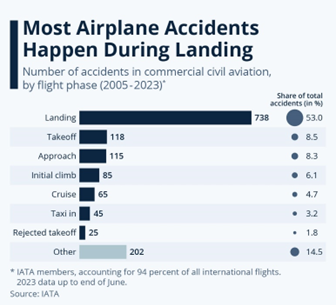TAG: GS 2: POLITY
THE CONTEXT: The Supreme Court of India, in response to a miscellaneous application filed by the Foundation for Media Professionals, issued directives to the government regarding the publication of final decisions made by the committee responsible for reviewing internet suspension orders in the Union Territory of Jammu and Kashmir (J&K).
EXPLANATION:
- The hearing focused on compliance with a Supreme Court judgment from January 2020 in the Anuradha Bhasin case.
Background and Legal Context:
- The Anuradha Bhasin case judgment declared indefinite suspension of internet and telecom services as impermissible.
- In 2019, journalist Anuradha Bhasin challenged the suspension of internet services in Jammu and Kashmir following the abrogation of Article 370.
- She argued that the suspension violated her fundamental rights to freedom of speech and expression, and the right to carry on her profession as a journalist.
- The Supreme Court of India, in 2020, ruled in favor of Bhasin.
- The Court recognized access to the internet as a fundamental right and laid down detailed guidelines for issuing internet suspension orders. These guidelines, often referred to as the Anuradha Bhasin guidelines, include:
- Necessity and proportionality: Shutdowns must be strictly necessary and not disproportionate to the threat.
- Alternatives: Less restrictive measures should be explored before resorting to a shutdown.
- Transparency and accountability: Orders must be published, specifying reasons and duration, and allowing legal challenges.
- Review mechanism: A committee reviews the orders and recommends revocation if necessary.
- The court outlined interim procedural safeguards to prevent misuse of powers under the Temporary Suspension of Telecom Services (Public Emergency or Public Service) Rules, 2017 in J&K.
- The judgment emphasized the need for a periodic review by the constituted committee within seven working days of the previous review.
Specifics of the Supreme Court Directive:
- The three-judge Bench, headed by Justice BR Gavai, directed the government to publish the final decisions of the review committee.
- However, the court agreed with the government that the internal deliberations of the review process need not be made public.
- Notably, the court did not address whether the reasons or findings of the review committee need to be published, leaving it open for individual petitioners to raise the issue in the appropriate forum.
- The Solicitor General representing the government, argued that the review process serves as an internal check into the proportionality of temporary suspension orders.
- He clarified that the government’s understanding was that only the suspension orders, not the review orders, needed to be published in line with the 2020 judgment.
Legal Implications and Safeguards:
- The 2020 judgment highlighted the importance of the review committee examining both the compliance with the Telegraph Act and the proportionality of the orders concerning internet suspension.
- It set forth the requirement for the publication of all orders under Section 144, Cr.P.C, and for the suspension of telecom services, including the internet.
- It allows affected individuals to challenge these orders before the High Court or an appropriate forum.
Comparison with Other States:
- During the hearing, the Foundation for Media Professionals pointed out that several other states, including Arunachal, Assam, Bihar, Maharashtra, Meghalaya, and Punjab, routinely publish their review orders.
- This raised questions about Jammu and Kashmir’s resistance to such publication.
- Solicitor General expressed the government’s willingness to publish review orders if the court deemed it necessary.
- He acknowledged that other states were following this practice.
- The court, in response, questioned the rationale behind Jammu and Kashmir’s resistance, emphasizing that the legal question needed exploration.
Internet Suspension rules in India:
- Temporary Suspension of Telecom Services (Public Emergency & Public Safety) Rules, 2017: It allows authorities to suspend services in case of “public emergency” or “public safety” concerns.
- Section 144 of the Code of Criminal Procedure, 1973: Also used to justify internet shutdowns, though its application for this purpose is contested.
- The Prevention of Internet Shutdown Bill, 2022: A proposed law awaiting approval, aims to establish a stricter framework with more oversight and limitations on internet suspension.
Conclusion and Future Implications:
- The Supreme Court’s directive represents a crucial step toward transparency in the government’s actions related to internet suspension orders. The distinction between publishing suspension orders and review orders underscores the need for clarity in legal procedures. The willingness of the government to comply, if deemed necessary by the court, hints at a potential positive shift in transparency practices, aligning with the broader legal principles established in the Anuradha Bhasin case.


